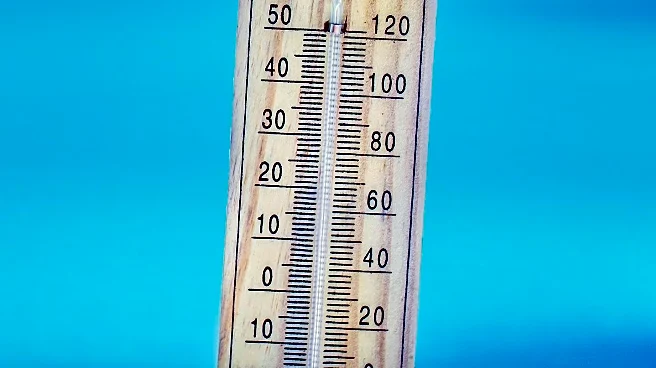What's Happening?
During winter months, individuals may experience heightened blood pressure due to various environmental and physiological factors. Cold weather causes blood vessels to constrict, leading to increased blood pressure and added
stress on the heart. This condition, known as winter hypertension, can result in complications such as heart attacks, strokes, and kidney issues. Factors contributing to this include decreased temperatures, seasonal declines in vitamin D levels, and elevated hormone levels like norepinephrine and epinephrine. Additionally, air pollution during winter exacerbates the condition by causing vasoconstriction and oxidative stress.
Why It's Important?
Understanding the impact of winter on blood pressure is crucial for preventing serious health complications. High blood pressure is a silent condition that can lead to severe cardiovascular issues if not managed properly. The seasonal increase in blood pressure highlights the need for individuals, especially those with pre-existing conditions, to monitor their health closely during colder months. Public health initiatives may need to focus on educating the population about the risks and management strategies for winter hypertension.
What's Next?
Individuals are advised to engage in mild indoor exercises, maintain a balanced diet, and manage stress to mitigate the effects of winter hypertension. Consulting with healthcare professionals for personalized advice and medication adjustments during winter is recommended. Public health campaigns could focus on raising awareness about the importance of monitoring blood pressure during seasonal changes.
Beyond the Headlines
The relationship between environmental factors and health conditions like hypertension underscores the importance of interdisciplinary research in public health. Understanding how climate and pollution affect health can lead to better prevention strategies and policies.









